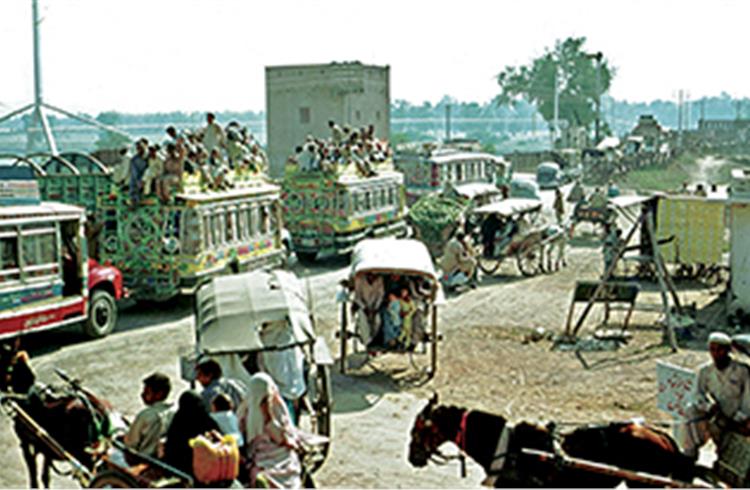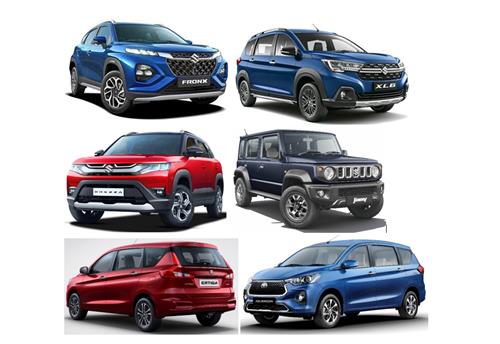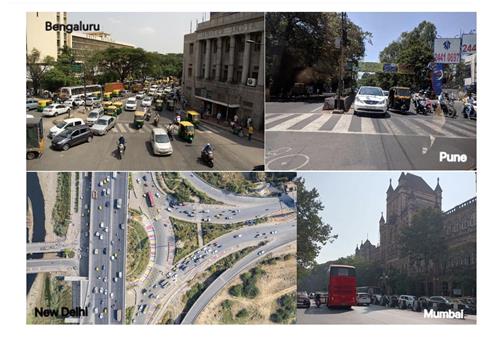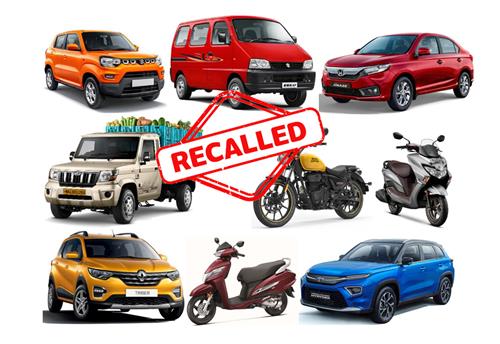Pakistan moots new auto policy
Pakistan has mooted an automotive policy to take its industry ahead and has also decided to abolish its long-standing deletion programme pertaining to this sector.
Earlier prime minister, Shaukat Aziz, who presides over the country’s Economic Coordination Committee, is reported to have said that the committee had cleared an automotive policy for new entrants in Pakistan’s automobile industry. The policy says that those companies which are producing over 500,000 units in countries other than Pakistan, besides having a significant global presence in auto manufacturing, would qualify to set up manufacturing operations. The new entrants will be allowed to import 100 percent CKD kits/components at the existing rate of customs duty for import of components, not manufactured locally, for three years from the start of manufacturing. They would be required to have sufficient resources to set up a facility and also paint shop capabilities.
This policy would not apply to existing car manufacturers/assemblers even in respect of new models. It is apparent that this mandate has been taken to protect the local component industry and also to unshackle Pakistan of the large Japanese presence in the auto sector. Another significant step as a result of mooting this auto policy is that the deletion (localisation) programme being followed would be scrapped and replaced by a tariff-based system (TBS) from the next fiscal, thus making way for a system which would be compliant to the WTO’s Trade-Related Investment Measures. The deletion programme is said to have received a five-year WTO waiver prior to the country’s introduction of a new system.
Pakistan follows a financial year of July-June. The TBS was formulated by the Engineering Development Board after consultations with a 13-member committee comprising automotive industry representatives and other relevant people. The TBS includes a list of parts and accessories which would be affected. It is reported that under this system, imports of parts, which are already being locally manufactured, would be subject to a customs duty of 50 percent while CKDs would be imported at 35 percent. This was a move to reduce the cost of imported inputs in the manufacture of cars for the local market.
##### INDUSTRY OVERVIEW
According to statistics compiled by the Pakistan Automotive Manufacturers Association (PAMA), 127,738 cars were manufactured from July 2005 to April 2006 while 125,222 units were sold in the same period. The model which led car sales was the 800cc Mehran manufactured by Suzuki’s joint-venture company, Pak Suzuki Motor Corporation. The Mehran, which is akin to a “peoples’ car”, sold 29,091 units. This was followed by the sale of 24,344 units of the Corolla model from the Toyota tie-up with Indus Motors. Honda Atlas Cars (Pakistan) sold 14,281 units of City in the same period and 10,781 units of the Civic . Motorcycles are the largest produced and selling vehicles in Pakistan’s automotive industry. Atlas Honda, a joint-venture between Honda (Japan) and the Atlas Group of Pakistan, are leaders in this segment and sold 292,166 units.
Autocar Professional has learnt from sources in Pakistan that the current investment level in car manufacturing is an estimated Rs 1,150 crore (Pakistan Rupees) and is expected to increase to Rs 5,455 crore by 2012 because of capacity expansion. On the other hand, investments in the auto component sector are expected to rise from Rs 7,200 crore to Rs 17,100 crore by 2012. As a result, employment in the component sector is expected to increase from the existing level of 160,000 to 265,000 people and from 5,340 to 13,150 people in the car-manufacturing sector. Up to $900 million worth of savings in foreign exchange is estimated in the car manufacturing sector.
The country's auto industry is still largely import-dependent from Japan, Korea, China, India and the US. Localisation levels of most vehicles are not as high as found in a country like India and the Pakistan government is keen to narrow the gap. Officials there feel that the quality of some products like tractors, which are said to have a local content of 90 percent, are much better than those made in India. Analysts there think that the government could do more to encourage exports. By fiscal 2009-10 the industry estimates that the Pakistani auto industry would have produced 300,000 cars; 8,000 trucks and buses; one million motorcycles; 39,000 pickups and 70,000 tractors.
Like most developing countries, technology ownership is a cause of concern in Pakistan. Industry officials, however, feel that technology gaps should narrow within the next four to five years to be able to offer consumers higher-local content vehicles at reasonable prices. Currently the country is said to have around 800 auto component manufacturers in the organised sector.
RELATED ARTICLES
Maruti Suzuki’s SUV and MPV production jumps 100% to 58,226 units in January 2024
Utility vehicle market leader’s two plants in Haryana along with Suzuki Motor Gujarat’s facility hit a record monthly hi...
Car and SUV users in Bengaluru and Pune took over 27 minutes to travel 10km in CY2023
Traffic remains a challenge worldwide as life returns to pre-pandemic levels. Four Indian cities are among the 80 cities...
Indian car and 2W OEMs recall 284,906 vehicles in 2023 and 5.35 million since 2012
CY2023 saw three two-wheeler manufacturers proactively recall 122,068 motorcycles and five car and SUV producers recall ...





 By Autocar Pro News Desk
By Autocar Pro News Desk
 29 Sep 2006
29 Sep 2006
 3418 Views
3418 Views









